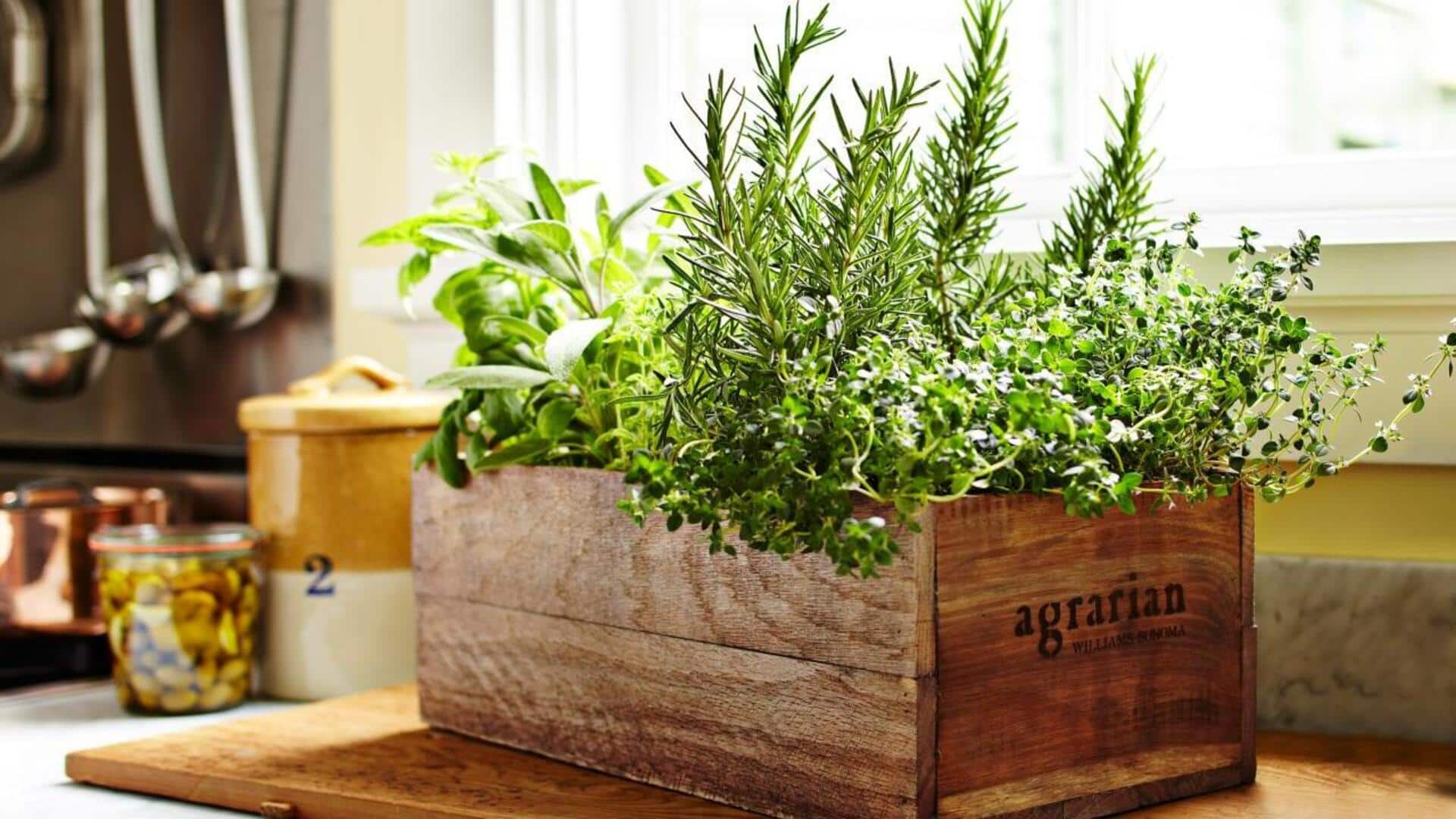
Growing fragrant rosemary bushes in kitchen window boxes
What's the story
Cultivating rosemary bushes in kitchen window boxes is a convenient and satisfying way to infuse your meals with fresh flavor and your home with natural beauty. This robust herb requires little maintenance, making it an ideal choice for both novice and experienced gardeners. With a bit of guidance, you can easily reap the fragrant rewards of homegrown rosemary.
Selection
Choosing the right box and soil
Choosing the right window box and soil is key to keeping your rosemary happy. Pick a box that's at least six to eight inches deep so the roots have plenty of room to stretch out. Make sure it has plenty of drainage holes so you don't end up with waterlogged plants. For soil, go for a well-draining potting mix. You can even get one specifically designed for herbs or vegetables.
Planting
Planting your rosemary
When planting rosemary, make sure to space the plants eight inches apart to allow for growth and air circulation. If you're starting from seeds, sow them in early spring. Or, you can purchase young plants from a nursery to get a head start. Firm the soil gently around each plant and water well.
Care
Sunlight and watering needs
Rosemary loves lots of sun, so the south-facing window is perfect for your window box. This herb likes it a bit dry, so make sure to let the soil dry out a bit between waterings. Overwatering is a big no-no, it can cause root rot. Remember, it's better to underwater than overwater, you don't want to drown it!
Maintenance
Pruning and harvesting tips
Regular pruning is key to keeping your rosemary bush healthy and encouraging growth. Every couple of months, trim back about a third of the plant's active growth to maintain its shape and size. When it comes to harvesting, always snip sprigs from the top down. This way, you're not only getting your fresh herbs but also helping your plant stay bushy and full.
Feeding
Fertilizing for healthier plants
Although rosemary isn't a heavy feeder, giving it a balanced liquid fertilizer every four weeks throughout the growing season will enhance its growth and oil production—meaning even more of those aromatic leaves you love. Just be careful not to overdo it with the fertilizer, as this can actually make the leaves less flavorful.